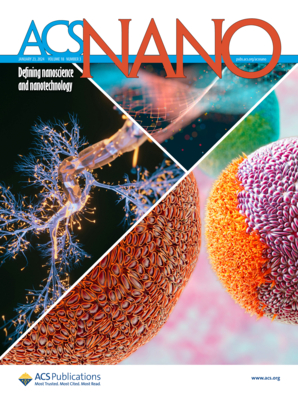纳米粒子-蛋白质电晕促进癌症诊断与蛋白质组学迁移学习。
IF 15.8
1区 材料科学
Q1 CHEMISTRY, MULTIDISCIPLINARY
引用次数: 0
摘要
随着蛋白质组学数据的快速增长,多蛋白质组学数据的整合可以提高生物标志物的识别和癌症诊断。然而,由于不同数据集来源之间的相当大的可变性和蛋白质表达水平的广泛范围,数据集成需要克服实质性的挑战。在本研究中,我们利用同一个体的血清和尿液,建立了两个深度配对的蛋白质组数据库,包括956个血清蛋白和4730个尿液蛋白。为了整合多蛋白质组学数据,我们开发了一个基于蛋白质组学的迁移学习神经网络(ProteoTransNet)来提高膀胱癌诊断和进展监测的准确性。通过对整合数据库的随机森林分析,我们选择了包含前10个关键蛋白的两个面板,获得了0.996的诊断AUC和0.914的阶段分类AUC。ProteoTransNet将血清和尿液蛋白质组数据库与蛋白质组学迁移学习相结合,通过最大限度地减少蛋白质组学数据差异引起的偏差和错误,显著提高了诊断准确性。我们的研究为复杂生物信息的迁移学习可能解决疾病诊断、预后和治疗中的复杂生物学问题提供了见解。本文章由计算机程序翻译,如有差异,请以英文原文为准。
Nanoparticle-Protein Corona Boosted Cancer Diagnosis with Proteomic Transfer Learning.
Keeping pace with the rapid growth of proteomic data, the integration of multiproteomic data can improve biomarker identification and cancer diagnosis. However, the data integration needs to overcome substantial challenges owing to considerable variability among diverse data set sources and the extensive range of protein expression levels. In this study, with serum and urine from the same individuals, we established two in-depth paired proteome databases, including 956 serum proteins and 4730 urine proteins. To integrate multiproteomic data, we developed a proteomic-based transfer learning neural network (ProteoTransNet) to enhance the accuracy of bladder cancer diagnosis and progression monitoring. Using random forest analysis on the integrated database, we selected two panels comprising the top 10 key proteins, achieving a diagnostic AUC of 0.996 and a stage classification AUC of 0.914. ProteoTransNet integrates serum and urine proteome databases with proteomic transfer learning, significantly enhancing the diagnostic accuracy through minimizing biases and errors caused by variations in proteomic data. Our study provides insights that transfer learning of sophisticated biological information may solve complicated biological problems in disease diagnosis, prognosis, and treatment.
求助全文
通过发布文献求助,成功后即可免费获取论文全文。
去求助
来源期刊

ACS Nano
工程技术-材料科学:综合
CiteScore
26.00
自引率
4.10%
发文量
1627
审稿时长
1.7 months
期刊介绍:
ACS Nano, published monthly, serves as an international forum for comprehensive articles on nanoscience and nanotechnology research at the intersections of chemistry, biology, materials science, physics, and engineering. The journal fosters communication among scientists in these communities, facilitating collaboration, new research opportunities, and advancements through discoveries. ACS Nano covers synthesis, assembly, characterization, theory, and simulation of nanostructures, nanobiotechnology, nanofabrication, methods and tools for nanoscience and nanotechnology, and self- and directed-assembly. Alongside original research articles, it offers thorough reviews, perspectives on cutting-edge research, and discussions envisioning the future of nanoscience and nanotechnology.
 求助内容:
求助内容: 应助结果提醒方式:
应助结果提醒方式:


